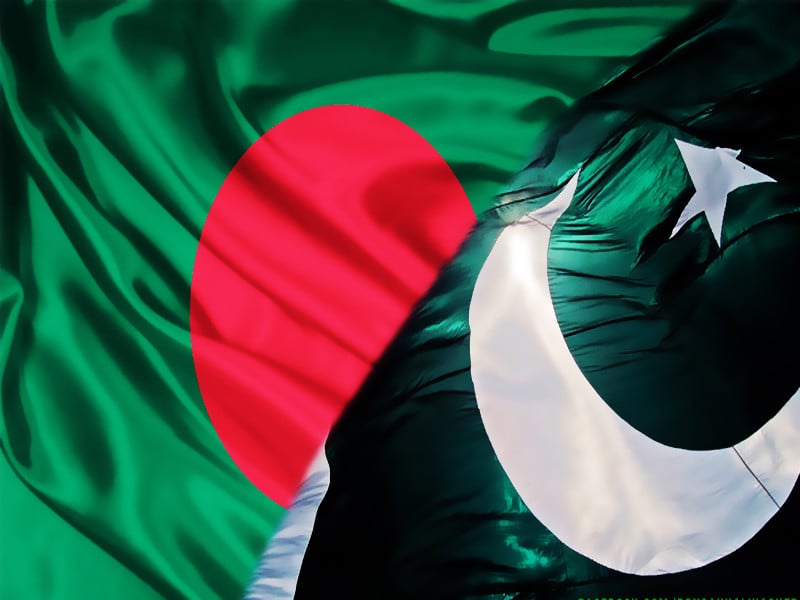Pakistan and Bangladesh are working quietly to reset their bilateral relationship that remained stalled under the ousted prime minister Sheikh Hasina during her 15-year rule.
People familiar with the development told The Express Tribune on Sunday that the ouster of Sheikh Hasina on August 5 after months of violent protests led by students certainly opened “doors” for Islamabad to mend ties with Dhaka.
During Sheikh Hasina’s term, seeking a meeting with a government official was a Herculean task for Pakistani diplomats. However, in the last few weeks, there have been a number of meetings between the Pakistani diplomats and members of the interim Bangladeshi government.
There was also a telephonic contact between Prime Minister Shehbaz Sharif and Chief Adviser of Bangladesh interim government Dr Muhammad Younus. This flurry of contacts has rekindled hopes of a thaw in the relationship between the two countries.
In one such meeting between the Pakistani high commissioner in Dhaka and the foreign policy adviser of Bangladesh, the two sides discussed the possibility of restoration of bilateral mechanisms.
The two countries have bilateral mechanism for political as well as economic cooperation. The Joint Economic Commission is the Apex forum between the two countries to discuss trade and commercial ties.
However, the commission became virtually redundant during the Sheikh Hasina government. Last meeting of the Joint Economic Commission took place way back in 2007.
However, Pakistan is now seeking the revival of Joint Economic Commission. The formal request for this purpose was recently made by the Pakistani High Commissioner.
According to the Bangladeshi media, Pakistan High Commissioner to Bangladesh Syed Ahmed Maroof paid a courtesy call on foreign adviser Touhid Hossain at the foreign ministry on September10.
During the meeting, the Pakistani envoy sought the easing of visas for Pakistani nationals to Bangladesh for enhancing people-to-people contacts. Pakistan is also seeking resumption of direct flights between the two countries.
Emphasising the need for strengthening relations between the two countries, the high commissioner underscored the necessity of resuming the activities of the existing bilateral mechanisms such as the foreign secretary-level consultations and the Joint Economic Commission.
Similarly, in order to add impetus to the ongoing efforts of mending ties, Prime Minister Shehbaz and Dr Younus are likely to meet on the sidelines of the UN General Assembly session in New York later this month.
This would be the first high-level meeting between the two countries in many years as Sheikh Hasina virtually severed such contacts during her term. Observers believe that despite a chequered history, there exists a tremendous goodwill about Pakistan at the moment in Bangladesh.
The example of that positive sentiment was on display when Quaid-i-Azam Muhammad Ali Jinnah’s death anniversary was observed for the first time in Bangladesh. Also, recently a Dhaka University professor suggested close ties with Pakistan to counter Indian designs.
At an event in Dhaka, Prof Shahiduzzaman proposed a nuclear treaty between Pakistan and Bangladesh. He termed Pakistan as the “most trusted and reliable partner of Bangladesh.” His remarks were received with thunderous applause from the audience, reinforcing the perception about the positive view about Pakistan in Bangladesh.
However, there has been a word of caution for the government. The government was informed that while there was lot of positive sentiments about Pakistan, the issues related to 1971 remain a matter of concern for Bangladeshi people. The events of 1971 could be overcome through close and deep cooperation between the two countries, according to sources.



